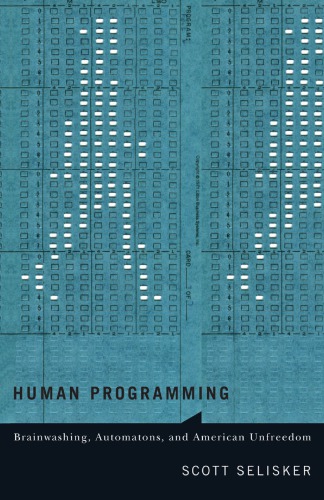Product desciption
Human Programming Brainwashing Automatons And American Unfreedom Scott Selisker by Scott Selisker 9780816699872, 0816699879 instant download after payment.
The first cultural history of the idea of the programmable mind in U.S. culture, from the Cold War to the War on Terror
Do our ways of talking about contemporary terrorism have a history in the science, technology, and culture of the Cold War? Human Programming explores this history in a groundbreaking work that draws connections across decades and throughout American culture, high and low. Scott Selisker argues that literary, cinematic, and scientific representations of the programmed mind have long shaped conversations in U.S. political culture about freedom and unfreedom, and about democracy and its enemies.
Selisker demonstrates how American conceptions of freedom and of humanity have changed in tandem with developments in science and technology, including media technology, cybernetics, behaviorist psychology, and sociology. Since World War II, propagandists, scientists, and creative artists have adapted visions of human programmability as they sought to imagine the psychological manipulation and institutional controls that could produce the inscrutable subjects of totalitarian states, cults, and terrorist cells. At the same time, writers across the political spectrum reimagined ideals of American freedom, democracy, and diversity by way of contrast with these posthuman specters of mental unfreedom. Images of such "human automatons" circulated in popular films, trials, travelogues, and the news media, giving form to the nebulous enemies of the postwar and contemporary United States: totalitarianism, communism, total institutions, cult extremism, and fundamentalist terrorism.
Scott Selisker is assistant professor of English at the University of Arizona.
"Ranging from discussions of The Manchurian Candidate and cyberpunk science fiction to the cases of Patty Hearst and the "American Taliban" John Walker Lindh, Human Programming opens new ways of understanding the intertwined roles of literature, film, science, and technology in American culture.
Human Programming is an imaginative and incisive account of how U.S. culture—across decades, mediums, and institutions—has given form to dystopian fears of mind control as a way of buttressing a sense of the American self that is even more outlandish in its pretenses to autonomy. From Cold War politics to posthuman technologies, Selisker reconsiders who we think we are by looking closely at the forces that have told us what to do." —Mark Goble, University of California, Berkeley
"Lucid and compellingly conceived, Human Programming contributes much to the growing body of scholarship on postwar American anxieties about human agency and social influence." —Timothy Melley, Miami University
"The American rhetoric around brainwashing, Selisker shows, is inconsistent at the most basic level: it takes for granted that the programmed self is inauthentic, and that the real self is spontaneous and unlearned." —Los Angeles Review of Books


